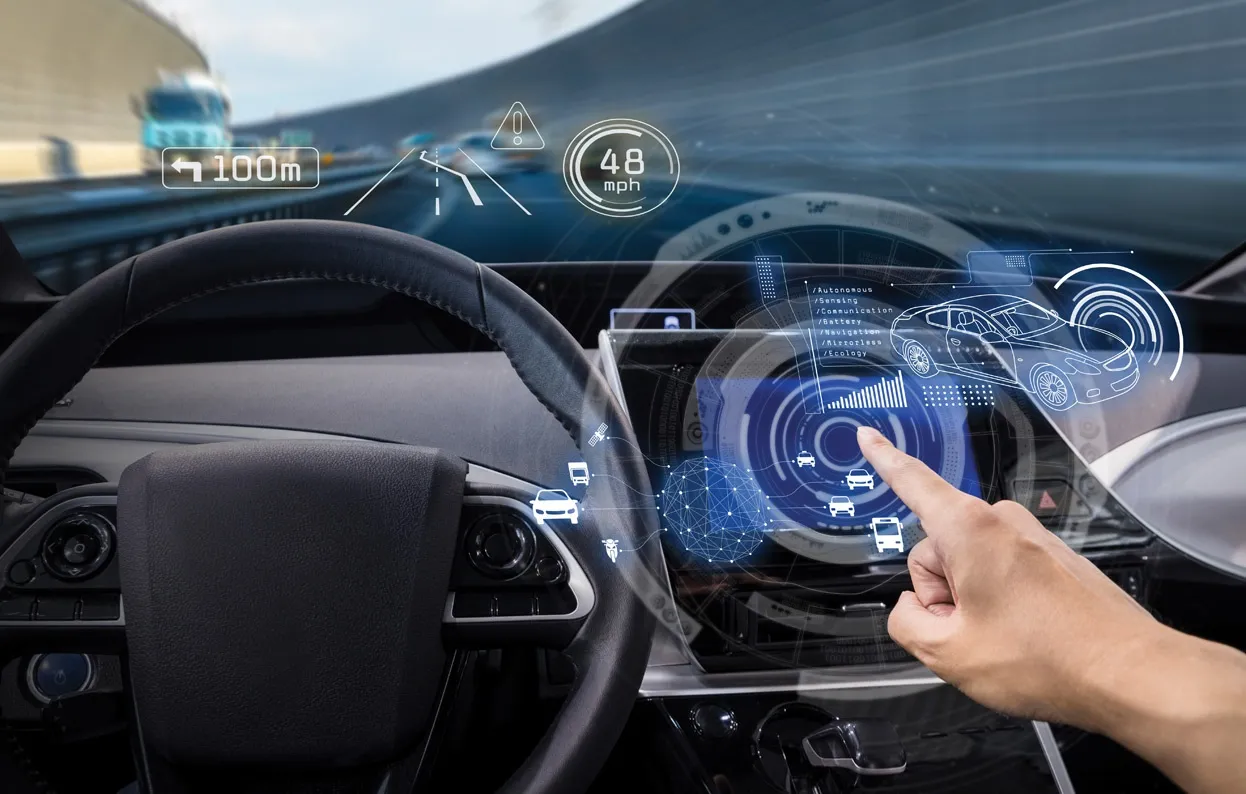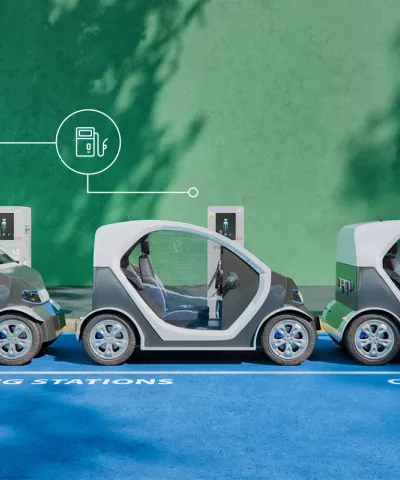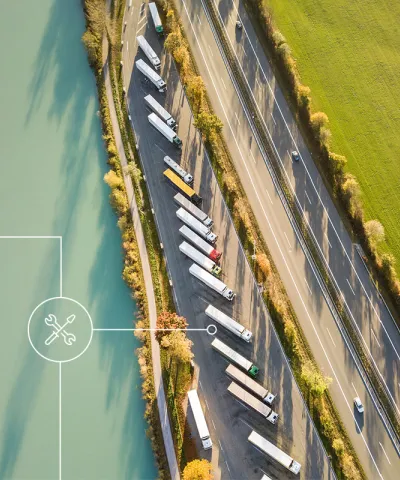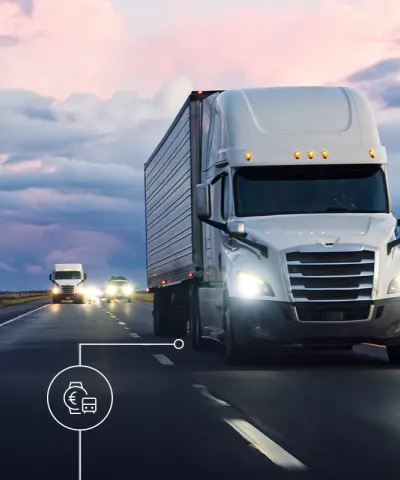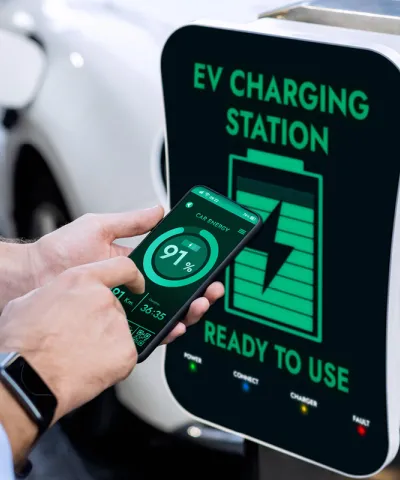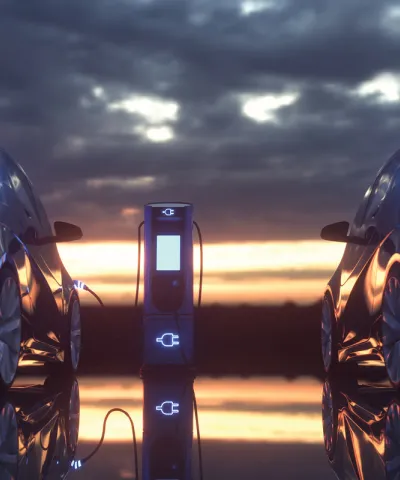The automotive sector will see more transformation in the coming decade than in the last 50 years combined. Although the industry is already adapting to trends such as electric mobility, autonomous vehicles, and digitalization, the unprecedented pace of change shows no sign of slowing. As income streams switch away from hardware to software-based solutions, and blockchain-powered marketplaces for buying and selling data become increasingly prominent, we predict that data monetization will be a key revenue driver for the automotive industry in the future.
By 2027, big data is expected to be worth up to one trillion dollars. Over the same timeframe, technologies based on the blockchain (a highly secure register of digital financial transactions that works without any central authority) may have become so ubiquitous that they store more than ten percent of global GDP. Both trends have endless applications, but the blockchain poses a particular threat to the existing business models of almost every industry.
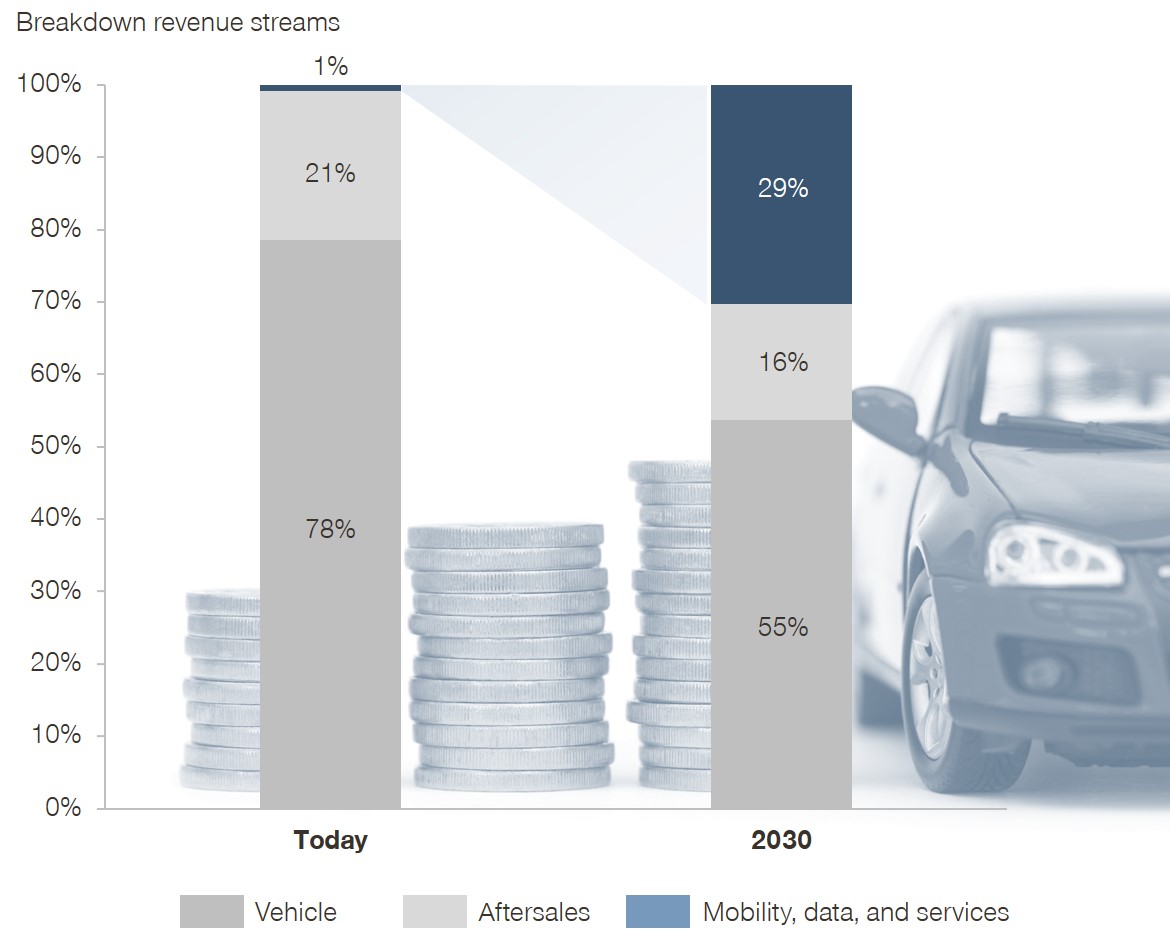
Within the automotive industry, a growing number of blockchain solutions are currently under development. These applications mainly fall into three categories: decentralized registries for vehicle information (ownership information, repairs, insurance, etc.), free machine-to-machine transfers of data and money, and secure platforms (e.g. OTA transfer for autonomous vehicles).
- Decentralized registries: By using the blockchain to record all the information relevant to each vehicle, decentralized registries are able to provide broad transparency over aspects such as warranty claims and used-car purchasing throughout the lifecycle of the vehicle
- Free machine-to-machine transfers of data or money: Machines are able to conduct micro-transactions between themselves independently, while integrated data marketplaces allow vehicle data to be monetized directly
- Secure platforms: The risk of malicious attacks on autonomous vehicles is eliminated, as blockchain-based platforms ensure that vehicle-to-vehicle navigation-route information, GPS, and other driving data is transmitted securely
New crypto entrants, such as the IOTA foundation, CUBE Intelligence, and VLB, are developing their own infrastructures at an astonishing pace. Established OEMs will soon have no option but to secure access to valuable customer data or risk missing out on enormous revenue potential. In order to remain at the center of the automotive ecosystem and make the most of vehicle data, OEMs should carefully consider implementing these three approaches: locking-in data, re-selling data, and re-using data.
Lock-in: Securing access to data
Personal data, vehicle-usage statistics, in-car preferences, technical status information, purchasing patterns, and external conditions: How can OEMs secure access to data, monetize it, and protect it from their competitors? The first step is to determine the value of the data and evaluate how willing customers are to share it. Depending on whether the data is generated by their own devices, such as the technical status of the vehicle, OEMs may have exclusive access to it. However, for many other types of data, OEMs will have to compete to gain access.
A growing number of providers from various sectors already offer monetary incentives to encourage customers to share their social network data. This development is likely to arrive shortly in the automotive industry (e.g. for personal attributes, purchasing preferences, etc.) and OEMs would be well advised to start preparing for such scenarios. Potential incentives include direct payment for data access based on value and willingness to share. In any case, significant investment will have to be made before this becomes a reality. As a prerequisite, car manufacturers need to set up digital structures to manage payments and install the necessary backend infrastructure. Ensuring the secure transmission of data and money will be paramount.
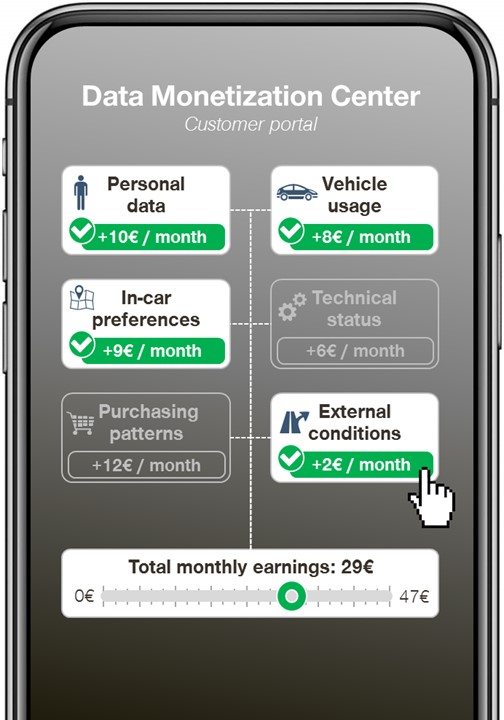
Re-sell: Wholesaling data as a revenue stream
Blockchain-based market places are expected to play a central role in this new automotive landscape. To be a part of this digital transformation, OEMs can enhance their current business models with data-wholesaling products and develop sophisticated monetization schemes to maximize their profit potential. Simple models based on linear relationships between price and data quantity are no longer fit for purpose. Instead, the price of data should be established according to metrics such as the number of individual customers included in the dataset or, more importantly, the number of attributes they have been assessed on. For example, the new model could charge a low price for a low amount of data from one individual with the price rising steeply as the amount of relevant data increases. When sufficient data has been collected, the price will fall, as marginal utility decreases for the data customer.
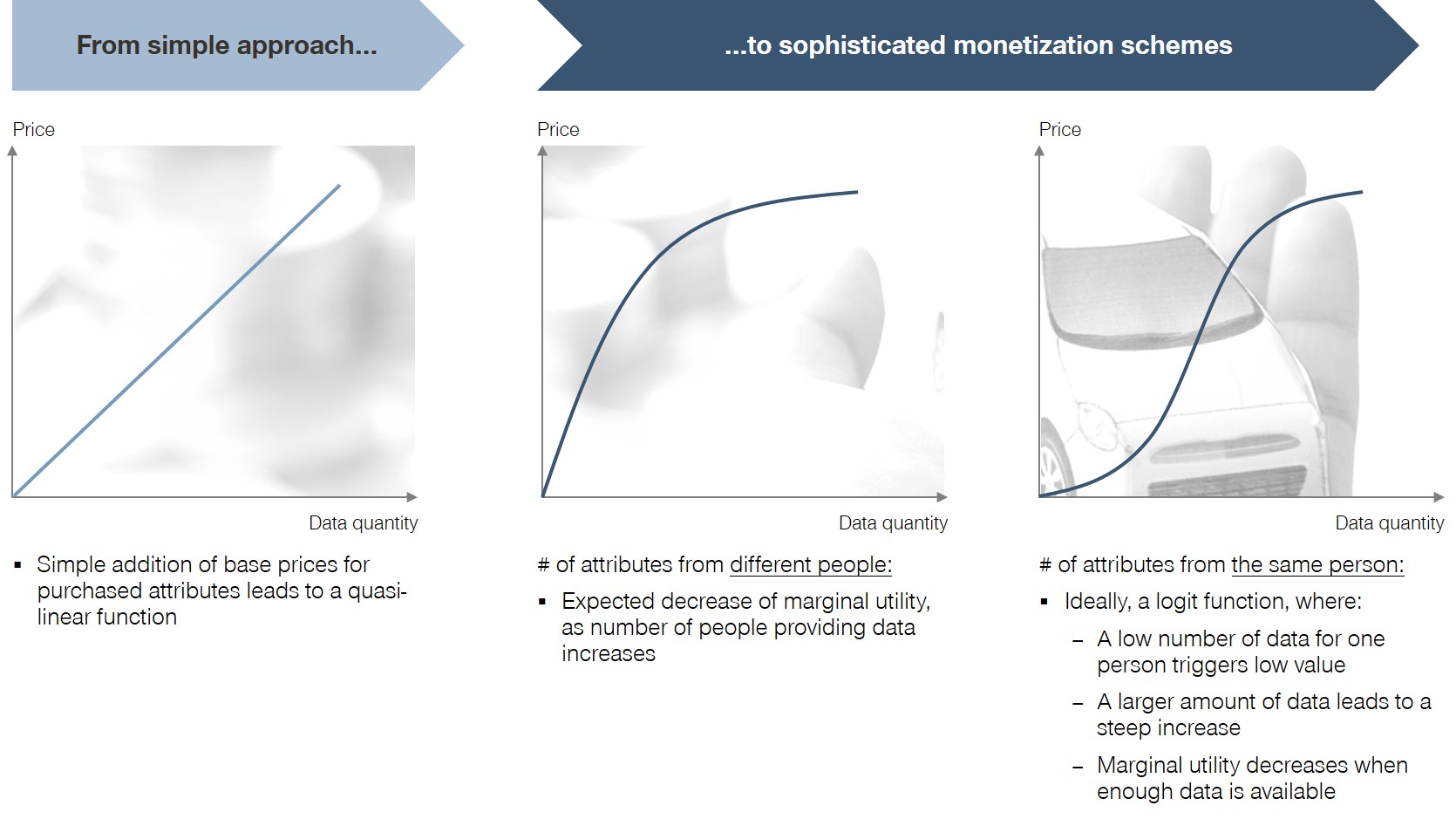
Re-use: Incorporating data to improve product offering
Big data analytics provides OEMs with an excellent opportunity to accelerate product development and design innovative new products. However, OEMs often collect a massive amount of customer information without having the right resources, processes, or systems in place to turn that data into actionable marketing insights. This lack of infrastructure threatens the vast potential of data-driven approaches for improving customer segmentation, optimizing current portfolios, and enhancing the customer experience. Data can also be used to develop entirely new connected, data-driven services and market these with innovative price models.
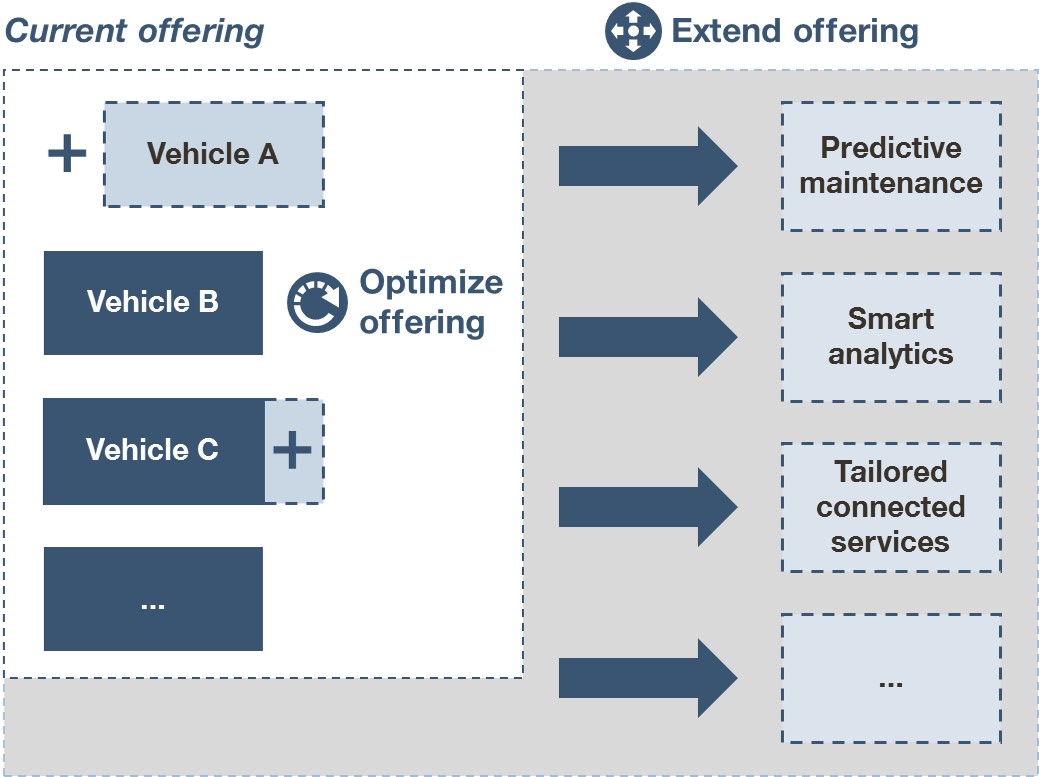
Outlook: Use your data to maximize revenue potential
Early movers such as Uber (partnering with VLB), Volkswagen and Bosch (with IOTA), Google (with Ripple), and recently Porsche (with XAIN) have already detected the dazzling potential of blockchain applications. They recognize how well the blockchain complements IoT technologies and provides new ways to monetize data. Although some of their attempts may fail, late movers will likely pay a high price later for reacting so cautiously to this trend.
AUTOMOTIVE INSIGHTS
Boosting revenue and profits in the automotive industry. Learn about our experts’ comprehensive solutions for the complex marketing, sales, and pricing problems automotive players are confronted with.
